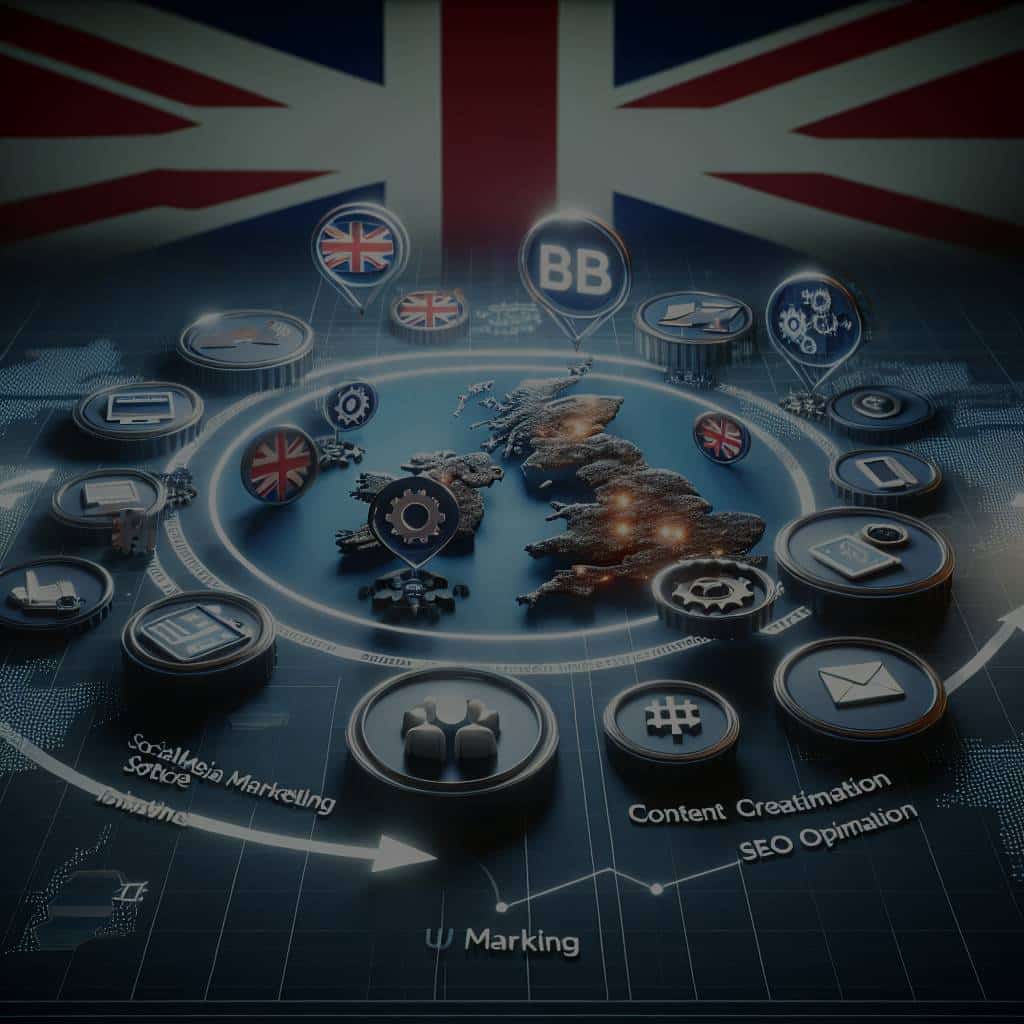In the dynamic realm of B2B software companies, particularly those in the UK, the pressure to generate leads and convert them into tangible sales is an ongoing challenge. However, the answer to this problem is not as elusive as it may seem. The key lies in strategizing and implementing effective lead generation techniques. By doing so, businesses can effectively capture the attention of their target audience, nurture prospective clients, and eventually transform them into loyal customers.
Understanding the Concept of Lead Generation
Before diving deep into the various techniques that can be employed, it’s crucial to first understand what lead generation is and why it’s critical for business growth. In its simplest form, lead generation is a marketing strategy that involves the identification and cultivation of potential customers for a business’s products or services.
Also read : How Can UK Craft Breweries Expand Their Market Reach Through E-commerce?
Lead generation is an integral part of the sales process. The idea is to build a pipeline of potential customers who have shown interest in your offerings and are likely to make a purchase in the future. The process involves tactics that aim to draw in people and convert them into leads, and ultimately, into devoted customers.
Lead generation is not a one-size-fits-all approach. The strategy you adopt should align with your business model, the nature of your product or service, and your target market. For UK B2B software companies, the focus is usually on attracting other businesses that will benefit from their software solutions.
This might interest you : How Can UK SMEs Optimize Their Websites for Accessibility Compliance?
Harnessing the Power of Content Marketing
One effective lead generation technique that UK B2B software companies can leverage is content marketing. By creating and sharing valuable, relevant, and consistent content, you can attract a clearly defined audience and drive profitable customer action.
Content marketing is all about telling your brand’s story, educating your audience about your solutions, and establishing your company as a thought leader in the software industry. The ultimate goal is to provide content that is so compelling that it attracts visitors to your website, engages them, and encourages them to leave their contact details – effectively generating a lead.
Content can come in various forms, such as blog posts, whitepapers, ebooks, infographics, and videos. For instance, you could publish a series of blog posts that address common problems faced by businesses in your target market and how your software solution can help solve these issues.
Email Marketing: A Tried and True Technique
Another technique that has stood the test of time is email marketing. It involves sending emails to potential customers or current customers with the aim of fostering a strong relationship.
Email marketing can serve several purposes. It can inform people about new products or special deals, remind them about your business, or even encourage them to take action. It’s a direct and personal form of communication that can help nurture leads and move them further down the sales funnel.
To maximize the effectiveness of your email marketing efforts, ensure your messages are tailored to the recipient. Use segmentation to divide your email list by customer persona, interests, stage in the sales cycle, and other factors. This way, you can send more targeted and relevant emails, increasing the chances of engagement and conversion.
The Role of Social Media in Lead Generation
In today’s digital age, social media has emerged as a powerful tool for lead generation. Platforms like LinkedIn, Twitter, and Facebook offer a plethora of opportunities to reach out to potential customers, engage with them, and turn them into leads.
Social media can help in establishing your company’s presence and building relationships with your audience. You can share informative content, engage in discussions, ask for feedback, and even run targeted ads to attract the right audience.
For B2B software companies, LinkedIn is particularly useful. It’s a professional network where you can connect with businesses and decision-makers in your target market. By sharing valuable content and engaging with your connections, you can generate high-quality leads that are more likely to convert.
Utilising Search Engine Optimisation (SEO)
Lastly, but certainly not least, Search Engine Optimisation (SEO) can play a pivotal role in lead generation. SEO involves optimising your website so that it ranks higher in search engine results, increasing its visibility and attracting more organic traffic.
In the context of lead generation, SEO can be incredibly effective. When potential customers search for solutions related to your offerings, your website could appear in the search results, leading them to visit your site and potentially become a lead.
To succeed with SEO, you should focus on providing high-quality content that is valuable to your audience, ensuring your website is technically sound, and building quality backlinks. Remember, SEO is a long-term strategy, but the pay-off can be significant.
In conclusion, lead generation for B2B software companies in the UK involves a multifaceted approach. It requires a blend of different techniques and strategies, from content marketing to email marketing, social media engagement, and SEO. By effectively implementing these techniques, you can generate high-quality leads, increase sales, and ultimately, drive your business to new heights.
Leveraging Case Studies for Lead Generation
The use of case studies can serve as a powerful strategy for lead generation. These documents tell the story of how your product or service solved a problem for a specific customer. They are a testament to the efficacy of your solutions, showcasing real-world examples of your products or services in action.
Case studies are not just about tooting your own horn – they offer valuable insights into how your solutions can be applied, and the kind of results potential customers can expect. They are persuasive because they provide social proof, a psychological phenomenon where people are influenced by the actions or decisions of others. In this context, if a potential customer sees that other businesses have benefited from your software, they are more likely to consider it as a viable solution for their needs.
Creating a compelling case study involves highlighting the problem or challenge your customer faced, explaining how your product or service provided a solution, and outlining the results in a clear and concise manner. Including quantifiable results can make your case study more impactful.
Remember to promote your case studies on your website, social media platforms, and email marketing campaigns. You can even create a dedicated section on your website where visitors can access and download your case studies, in exchange for their contact details.
Lead Nurturing: An Essential Component of Lead Generation
After generating leads, it’s important not to let them go cold. This is where lead nurturing comes in. It is a process of developing relationships with buyers at every stage of the sales funnel, and through every step of the buyer’s journey. It focuses on listening to the needs of prospects, and providing the information and answers they need.
Lead nurturing is a crucial component of a successful lead generation strategy. It’s about building a relationship with your potential customers, providing them with valuable information, and guiding them through the decision-making process. This can increase the likelihood that when they’re ready to make a purchase, they’ll choose your business over your competitors.
There are various ways to nurture leads, from sending personalised emails, offering valuable content, to engaging with them on social media. Remember, the goal here is to keep your leads engaged and gradually lead them towards a purchase decision.
In essence, lead nurturing is about showing your leads that you understand their needs and that your product or service is the best solution for them.
Conclusion: The Art and Science of Lead Generation
In the highly competitive landscape of UK B2B software companies, lead generation is both an art and a science. It involves understanding your target audience, creating and disseminating valuable content, leveraging social media platforms, executing targeted email campaigns, using case studies as social proof, and maintaining an ongoing relationship with potential customers through lead nurturing.
While these strategies may require significant time and effort, the payoff can be significant. By generating high-quality leads, you are not just increasing your chances of making a sale today, but also creating a pipeline for future sales.
Ultimately, the key to successful lead generation lies in understanding your customers, offering them value, and staying consistent in your efforts. With a well-thought-out and executed lead generation strategy, UK B2B software companies can increase their customer base, boost their sales, and grow their business.






